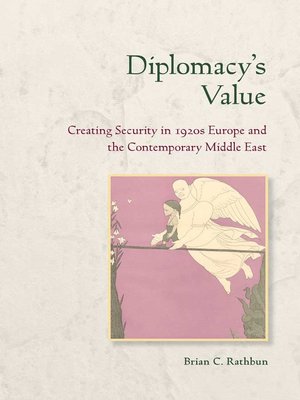Diplomacy's Value
ebook ∣ Creating Security in 1920s Europe and the Contemporary Middle East · Cornell Studies in Security Affairs
By Brian C. Rathbun

Sign up to save your library
With an OverDrive account, you can save your favorite libraries for at-a-glance information about availability. Find out more about OverDrive accounts.
Find this title in Libby, the library reading app by OverDrive.



Search for a digital library with this title
Title found at these libraries:
| Library Name | Distance |
|---|---|
| Loading... |
What is the value of diplomacy? How does it affect the course of foreign affairs independent of the distribution of power and foreign policy interests? Theories of international relations too often implicitly reduce the dynamics and outcomes of diplomacy to structural factors rather than the subtle qualities of negotiation. If diplomacy is an independent effect on the conduct of world politics, it has to add value, and we have to be able to show what that value is. In Diplomacy's Value, Brian C. Rathbun sets forth a comprehensive theory of diplomacy, based on his understanding that political leaders have distinct diplomatic styles: coercive bargaining, reasoned dialogue, and pragmatic statecraft.
Drawing on work in the psychology of negotiation, Rathbun explains how diplomatic styles are a function of the psychological attributes of leaders and the party coalitions they represent. The combination of these styles creates a certain spirit of negotiation that facilitates or obstructs agreement. Rathbun applies the argument to relations among France, Germany, and Great Britain during the 1920s as well as Palestinian–Israeli negotiations since the 1990s. His analysis, based on an intensive analysis of primary documents, shows how different diplomatic styles can successfully resolve apparently intractable dilemmas and equally, how they can thwart agreements that were seemingly within reach.







